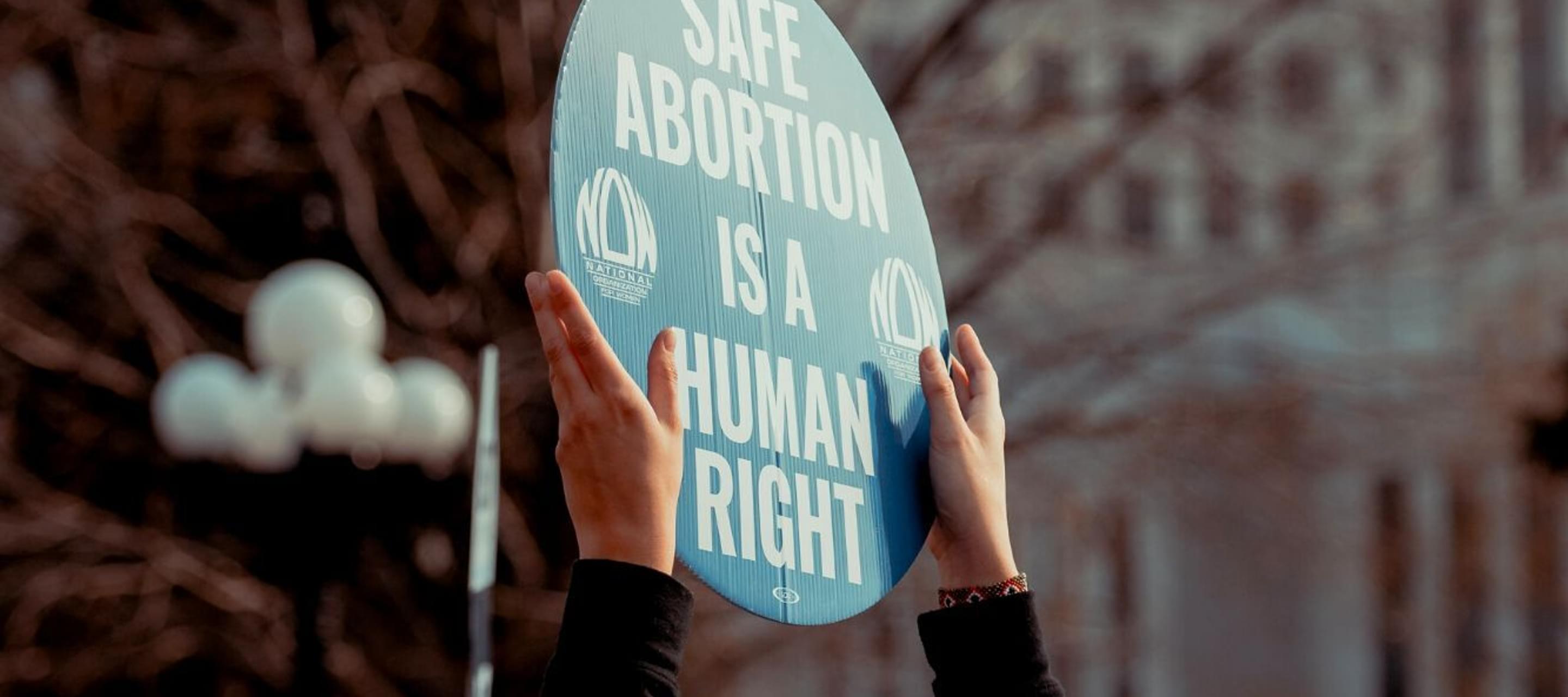Taking a Stand – How Can Business Respond to Women’s Rights and Reproductive Health Threats
10 July 2022

The reverberations from the US Supreme Court ruling overturning Roe v Wade, which for nearly 50 years protected women’s reproductive rights, have been swift and dramatic. Eight states in the US had abortion bans in their laws which became effective immediately, with 13 more implementing new legislation and others expected to follow.
In the wake of the Supreme Court’s ruling, companies began publicly announcing supportive measures for employees to access safe abortions.
States with more liberal legislatures are now introducing measures to protect the right. All the responses are further dividing the country in ways that are deeply troubling. Many of the restrictive laws being introduced leave no exception for pregnancies due to rape or incest and are unclear on policies for allowable procedures when a mother’s life is under threat. These laws and practices directly violate reproductive rights and the right to privacy, and by extension, to live free from violence and discrimination in line with international human rights law and its foundation in the Universal Declaration of Human Rights.
Countries that are constitutionally required to keep faith and governance apart, like the United States, have taken a huge step backward.
The unfolding story in the US has revived worldwide discussions on reproductive rights and healthcare as a human right, crossing all sectorial lines. Globally, abortion laws vary. Some 24 countries around the world prohibit abortion under all circumstances. Other countries have progressively recognized the right with 42 countries allowing it to save the life of the individual; and 72 countries permit it on the individual’s request. Restrictions are placed based on theological grounds (when does life begin?), morality (the rights of the unborn), patriarchy (denying agency), as well as discriminatory misogyny. Religious beliefs play a major role in guiding those who seek to restrict an individual’s right to choose, but some formerly staunchly religious societies, like Ireland and Mexico, have removed restrictions, whereas countries that are constitutionally required to keep faith and governance apart, like the United States, have taken a huge step backward.
As governments continue to roll back human rights commitments, and sometimes pass laws that directly violate core principles, society often looks to business to fill the vacuum and use its leverage to address human rights concerns.
What can businesses do?
Companies cannot ignore the issue. What should business leaders do when governments fail to protect the human rights of their citizens? As outlined in the United Nations Guiding Principles on Business and Human Rights, all businesses have the responsibility to respect human rights not only within their own operations, but also throughout supply chains, and within impacted communities. Most companies do not wish to enter into contentious political debates, and many reveal their public advocacy preferences through their charitable donations, also by donating to politicians and organisations on both sides of the political divide. Yet, as governments continue to roll back human rights commitments, and sometimes pass laws that directly violate core principles, society often looks to business to fill the vacuum and use its leverage to address human rights concerns.
If employees cannot receive safe access to reproductive health services, business’ bottom line may suffer.
Companies understand this; some have recently taken public positions on key human rights matters. In the US, this includes the mass corporate withdrawals from Russia after the invasion of Ukraine, Disney’s public commitment to supporting LGBTQ+ rights after the Florida “Don’t Say Gay” Law, Dick’s Sporting Goods hiring gun control lobbyists and no longer selling guns to persons under 21 in response to the lack of US gun restriction laws, and Airbnb’s provision of free housing to immigrants effected by the Trump-era travel ban. Hundreds of US companies wrote amicus briefs to the Supreme Court to support same-sex marriage, and many companies publicly donated to and supported the Black Lives Matter movement.
In the wake of the Supreme Court’s ruling, companies began publicly announcing supportive measures for employees to access safe abortions. While others, such as Amazon, Blackstone, Tesla, and Starbucks, had preemptively put in such measures a month before the court ruling. In addition to funding travel for employees needing abortion, Patagonia has also promised to provide bail for employees arrested during pro-choice protests. Google went so far as to internally announce that employees could apply for relocation without justification.
These new policies are not mere public relations exercises decided in the heat of the moment, but are also based on the financial and economic cost of limiting abortion access. Such costs can be significant. The Institute for Women’s Policy Research (IWPR) revealed data in a new report showing how access to abortion improves women’s access to education, employment, and wages, especially for Black women. Without abortion restrictions, an additional 505,000 women would enter the workforce, earning $3 billion annually, and the workforce of Black women would increase by 1.27 percent and 1.28 for Hispanic women. This also suggests that if employees cannot receive safe access to reproductive health services, business’ bottom line may suffer, including increasing talent competition based on where businesses are headquartered.
Lack of abortion access will also impact employee mental health as projected by the American Psychological Association, which anticipates an increase in anxiety and depression and higher stress.
As Luis von Ahn, chief executive of Duolingo, the company that offers web-based tools to learn different languages, said recently, such restrictions may also impact a company’s ability to attract top talent. A recent poll from the Society for Human Resources Management found that a quarter of polled companies believe offering a fund for reproductive healthcare in another state will improve talent acquisition. This is echoed in the recent report by Rhia Ventures, Hidden Value: The Business Case for Reproductive Health, which outlines four key business drivers that corporations should take into consideration, including attracting and recruiting talent, benefits, public scrutiny, and DEI efforts.
The consequences for employees and the support businesses can offer
Lack of abortion access will also impact employee mental health as projected by the American Psychological Association, which anticipates an increase in anxiety and depression and higher stress. With the trend in corporate America to become inclusive, trauma-informed workplaces, understanding how this change in abortion access impacts employees of all genders will be important to retaining staff, ensuring efficiency, and building safe workplaces. Employers can work to support employees’ mental health through supportive and open dialogue within teams and during meetings with direct reports, as well as free and accessible clinical mental health services, and awareness about the language they use publicly on the issue.
Companies taking a stand in support of abortion access will, undoubtably, face backlash from conservative stakeholders and states.
Consultancy groups are also stepping up to provide guidance for companies looking to support abortion access, help maintain the privacy of workers, and provide guidance on insurance package impacts. Internet-based companies offering search engines are making it easier for users to remove their location history, to prevent others from finding out who is searching for abortion clinics, as well as securing users’ health data. A new tool produced by IWPR offers compelling insight for corporations and individuals looking to understand the economic loss, impact on state GDP, and the losses in labor workforce due to abortion restrictions.
Companies taking a stand in support of abortion access will, undoubtably, face backlash from conservative stakeholders and states. Just as Disney saw its tax benefits and self-governing status in Florida threatened because of its opposition to laws on same-sex relationships, companies may face similar measures relating to positions on abortion, including public shaming, criminalisation of pro-choice companies, and anti-abortion boycotting, which could impact their revenues. These may happen even if the same companies provide donations to politicians and organisations that oppose abortion. Already Citigroup and Lyft were warned about possible legal ramifications if they undermine the state’s law and respect the rights of their employees.
Companies will need to give careful thought to their roles in supporting access for these community members who may be systemically marginalised from internal employment policies.
The creation of funds for employees to access abortion is just the first step. The bigger challenge will be facing the criminalisation of abortion or those who aid in accessing abortion, and its impact on Black, Indigenous, and People of Color (BIPOC) women, intersex people, nonbinary persons, and transgender men and boys (who face additional health, financial, and safety risks due to stigma and medical needs). Communities with high rates of poverty, and populations on the fringes of the private and public sphere will also suffer, including those with substance use disorders, people with disabilities, people experiencing homelessness, and migrants without status.
Conclusion
Companies will need to give careful thought to their roles in supporting access for these community members who may be systemically marginalised from internal employment policies. Company leaders could explore a number of ways to be of help to impacted marginalised communities, including through CSR or charitable programmes for non-employee individuals seeking access to safe abortions. Businesses could also require companies they work in partnership with or supplier companies to offer similar services to their employees.
All businesses should recognise that this moment will require them to step up and defend the rights of employees and others facing serious harm.
Regardless of how far companies will go to protect their workers’ rights to reproductive healthcare, businesses in the US now face new burdens and will need to reflect carefully on their responsibilities in this new reality. Issues such as immigration, gender rights, and reproductive justice are politically divisive and companies taking rights-affirming action can face serious backlash ranging from negative impacts on sales to share prices to public image. Yet, as with other actions, companies can employ risk management strategies to navigate any repercussions.
Political, cultural, religious, or societal opposition are not sufficient reasons to restrict rights; otherwise, laws that permitted slavery, racism, and criminalising same-sex relationships would have remained on statute books. Businesses across the world must continue to recognise the immense power and leverage they wield to guide protective measures. If governments enact laws and policies that leave citizens vulnerable to instability and suffering, it is up to business and other influential actors to honour rights within their own practices and policies, if that higher standard is consistent with international human rights standards.
The way forward will be difficult, and the best responses will take time to become clear. But all businesses should recognise that this moment will require them to step up and defend the rights of employees and others facing serious harm.




